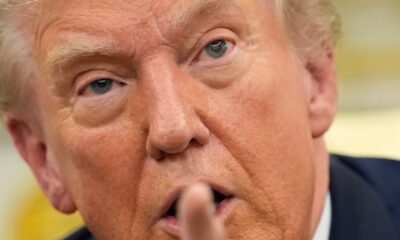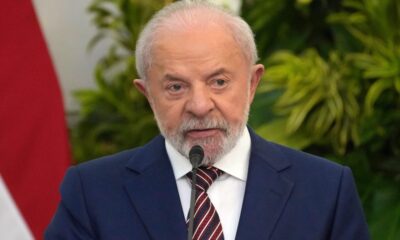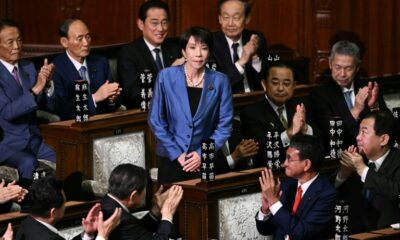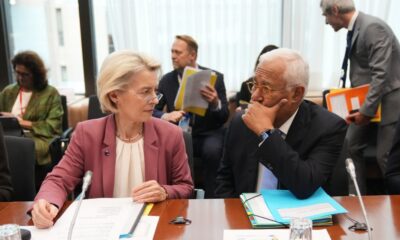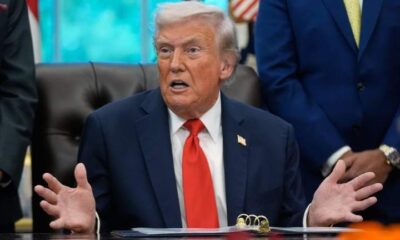World
Trump Backs Off Federal Force in San Francisco After Key Calls
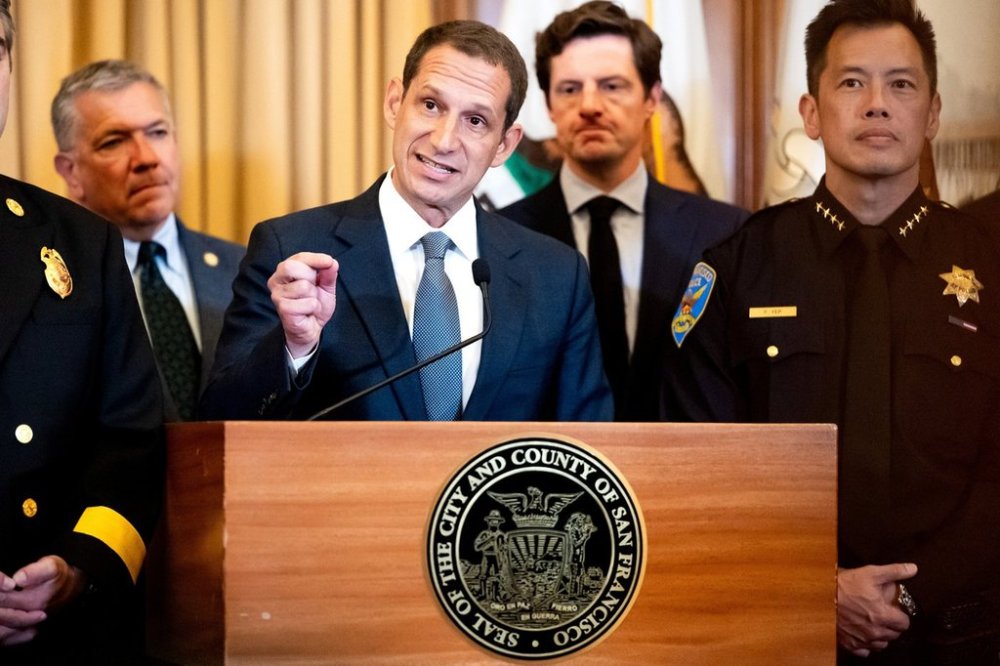
President Donald Trump has decided against deploying federal forces in San Francisco after conversations with prominent tech leaders and the city’s mayor. Initially prepared to send federal troops to address what he termed as the city’s crime issues, Trump changed his position after discussions with Jensen Huang, CEO of Nvidia, and Marc Benioff, CEO of Salesforce.
During a press briefing at the White House, Trump revealed, “I got a great call from some incredible people, some friends of mine, very successful people.” He acknowledged that these leaders informed him about local efforts to combat crime, leading to his decision to hold off on federal intervention. “So we are holding off that surge, everybody. And we’re going to let them see if they can do it,” he stated, while leaving the door open for future actions if crime rates do not improve.
The planned federal force deployment was set for Saturday, but Trump did not clarify whether this included only National Guard troops or potential immigration enforcement increases. Meanwhile, U.S. Customs and Border Protection agents arrived at a Coast Guard base near the city on the same day, prompting protests from local residents.
Conversations with tech executives played a significant role in Trump’s decision. He highlighted his respect for Mayor Daniel Lurie, who has focused on local governance and avoided direct confrontation with the Trump administration. Lurie, who took office after defeating former Mayor London Breed, emphasized the city’s declining crime rates, noting a 26% decrease compared to the previous year. He stated, “I told the mayor, I love what you’re doing, I respect it, and I respect the people that are doing it.”
Lurie has positioned himself as a centrist leader focused on revitalizing San Francisco’s economy and public safety. He has refrained from engaging in national political disputes but remains committed to partnerships with federal agencies, particularly regarding drug enforcement. “But having the military and militarized immigration enforcement in our city will hinder our recovery,” Lurie remarked, specifically addressing the challenges posed by fentanyl abuse in the city.
Former U.S. House Speaker Nancy Pelosi praised Lurie’s leadership, while California Governor Gavin Newsom commented that “Trump has finally, for once, listened to reason.” Despite this, skepticism remains among some local officials regarding Trump’s reliability. San Francisco Supervisor Connie Chan expressed concern, stating, “We cannot trust Trump,” while Supervisor Jackie Fielder described collaboration with federal law enforcement as a “dangerous invitation to a fascist administration.”
Trump indicated that he had received multiple calls from influential business leaders urging him to allow local authorities to manage the situation. He noted, “They’re the biggest people in the world, a lot of the high tech. They want to do it. And I said, ‘I am so honored to let you do it.’”
As discussions continue, Trump’s recent retreat from his aggressive stance marks a significant moment in the relationship between federal authorities and local governance in San Francisco. The city’s efforts to combat crime will now have a chance to develop without the immediate threat of federal intervention, though the situation remains dynamic and subject to change.
-

 World3 months ago
World3 months agoScientists Unearth Ancient Antarctic Ice to Unlock Climate Secrets
-

 Entertainment3 months ago
Entertainment3 months agoTrump and McCormick to Announce $70 Billion Energy Investments
-

 Lifestyle3 months ago
Lifestyle3 months agoTransLink Launches Food Truck Program to Boost Revenue in Vancouver
-

 Science3 months ago
Science3 months agoFour Astronauts Return to Earth After International Space Station Mission
-

 Technology2 months ago
Technology2 months agoApple Notes Enhances Functionality with Markdown Support in macOS 26
-

 Top Stories2 weeks ago
Top Stories2 weeks agoUrgent Update: Fatal Crash on Highway 99 Claims Life of Pitt Meadows Man
-

 Sports3 months ago
Sports3 months agoSearch Underway for Missing Hunter Amid Hokkaido Bear Emergency
-

 Politics3 months ago
Politics3 months agoUkrainian Tennis Star Elina Svitolina Faces Death Threats Online
-

 Technology3 months ago
Technology3 months agoFrosthaven Launches Early Access on July 31, 2025
-

 Politics3 months ago
Politics3 months agoCarney Engages First Nations Leaders at Development Law Summit
-

 Entertainment3 months ago
Entertainment3 months agoCalgary Theatre Troupe Revives Magic at Winnipeg Fringe Festival
-

 Politics2 weeks ago
Politics2 weeks agoShutdown Reflects Democratic Struggles Amid Economic Concerns

